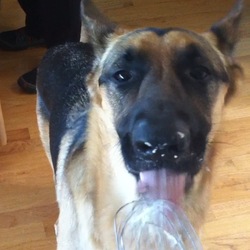
80 Pinot Noir. Delightful champagne, brioche, lots of red fruit, great acidity, fine bubbles.
80 Pinot Noir. Delightful champagne, brioche, lots of red fruit, great acidity, fine bubbles.
Feb 27th, 2022
Assemblage: 70% Pinot Noir, 30% Chardonnay
Terroir: Verzenay Grand Cru
Bottling Date: April 2, 2014
Disgorgement Date: January 29, 2019
Dosage: 1.6 G/L
Assemblage: 70% Pinot Noir, 30% Chardonnay
Terroir: Verzenay Grand Cru
Bottling Date: April 2, 2014
Disgorgement Date: January 29, 2019
Dosage: 1.6 G/L
Aug 23rd, 2021
Assemblage: PN 70% & Chardonnay 30%
Terroir: Verzenay Grand Cru
Bottling Date: April 2nd, 2014
Disgorgement: May 17th, 2019
Dosage: 1.6 G/L
Assemblage: PN 70% & Chardonnay 30%
Terroir: Verzenay Grand Cru
Bottling Date: April 2nd, 2014
Disgorgement: May 17th, 2019
Dosage: 1.6 G/L
Jan 1st, 2021
Bottling Date: 04.02.14
Disgorgement: 05.17.19
Dosage: 1.6
100% Verzenay Grand Cru
70% Pinot Noir & 30% Chardonnay
Bottling Date: 04.02.14
Disgorgement: 05.17.19
Dosage: 1.6
100% Verzenay Grand Cru
70% Pinot Noir & 30% Chardonnay
Dec 20th, 2020
Base Vintage: 2012
Bottling: 07/24/13
Disgorgement: 05/24/16
Dosage: 4.8 G/L
100% Verzenay Grand Cru
Base Vintage: 2012
Bottling: 07/24/13
Disgorgement: 05/24/16
Dosage: 4.8 G/L
100% Verzenay Grand Cru
Jun 19th, 2020
Disgorgement: April 19, 2017
Bottling Date: July 24, 2013(almost entirely 2012 vintage)
Dosage: 4.8 G/L
70% Pinot Noir & 30% Chardonnay
100% Verzenay Grand Cru
Disgorgement: April 19, 2017
Bottling Date: July 24, 2013(almost entirely 2012 vintage)
Dosage: 4.8 G/L
70% Pinot Noir & 30% Chardonnay
100% Verzenay Grand Cru
Apr 26th, 2020
Nice. Better with a little air, (more fruit than toast) 79% Pinot Noir, 30% Chardonnay bottled April 2, 2014. Disgorged May 15, 2019. Dosage 1.6g/L. TLB
Nice. Better with a little air, (more fruit than toast) 79% Pinot Noir, 30% Chardonnay bottled April 2, 2014. Disgorged May 15, 2019. Dosage 1.6g/L. TLB
Feb 26th, 2020
2012 Vintage; July 2013 bottling; April 2017 disgorgement.
2012 Vintage; July 2013 bottling; April 2017 disgorgement.
Feb 1st, 2020
2 April 2014 bottling(2013 vintage)
28 January 2019 disgorgement
2 April 2014 bottling(2013 vintage)
28 January 2019 disgorgement
Oct 13th, 2019
2 April 2014 bottling(2013 vintage)
28 January 2019 disgorgement
2 April 2014 bottling(2013 vintage)
28 January 2019 disgorgement
Oct 12th, 2019 Champagne, France
Champagne, France





